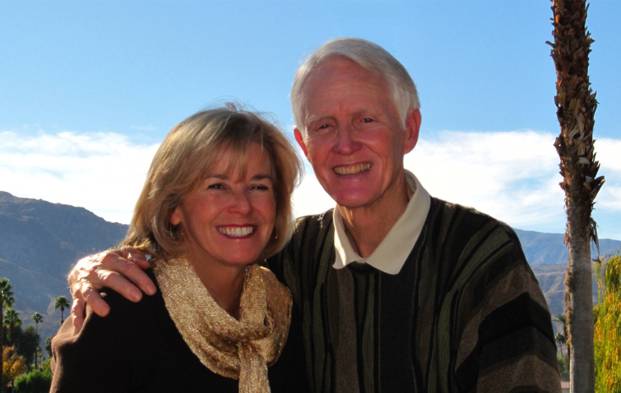
Our Search for Happiness and Self-Actualization
Part 3: Your Ultimate Concern
Tom G. Stevens PhDPsychologist/Professor Emeritus, California State University, Long Beach
Send Feedback/Questions to: Tom.Stevens@csulb.edu
You Can Choose To Be Happy:
Site dedicated to enhancing human happiness, self-development, and success
Go to: Choose To Be Happy Checklist
SITE MAP: All free Self-help resources includes online book, You Can Choose To Be Happy, and SHAQ

|
|||
| search engine by freefind |
Go to Site Homepage
Go to book contents Go to chapter contents
Your TOP GOAL in life as a major cause of happiness or unhappiness
Contents:
YOUR ULTIMATE CONCERN
YOUR ULTIMATE CONCERN:
Your "Top Goal" will control your life and happiness
Paul Tillich, a great philosopher and theologian of the modern era, said that our ultimate concern is probably the most important single factor determining our personality and life. It is our most important value. He called it our personal "god," because it is so powerful. Our ultimate concern determines other values, beliefs, goals, feelings, and actions.
For example, if money is my ultimate concern, then I will focus upon making money above all else. I will choose a career, wife, car, dress, and activities that are consistent with making the most money I can. If money is my ultimate concern, then when the value of money conflicts with another value, the value of making money will always win the conflict. My "money god" will control me and determine much of my personality and my relationship to the world around me.
If my ultimate concern is being loved by my significant other, then the approval of my significant other controls my life--even when that approval is clearly self-destructive. People in "addictive" relationships often make their significant others their "gods."
Likewise, children from dysfunctional families often make their family their ultimate concern. Psychologists often see family members so enmeshed with each other that it is extremely difficult for them to break free of these bonds. Adult children may still desperately want love and approval from their family--even though they will never get enough.
When we make other people (or their approval) our ultimate concern, then we make them our "gods." We give them control of our lives and our happiness. Instead, take back the control of your life--take responsibility for your own happiness. Seek your own approval--not theirs. Let them have primary responsibility for their own happiness. Don't let them manipulate you with "guilt trips." (See internal control chapter 6.)
EXTERNALLY-CENTERED (EC) VERSUS INTERNALLY-CENTERED (IC) values
Perhaps you already understand that satisfaction of your top values and goals is fundamental to your happiness. However, you may not fully grasp how critical your choices of ultimate concern and top values are to your happiness. The choice of externally-centered versus internally-centered values is a powerful dimension affecting your happiness.
Externally-centered (EC) values. EC values are more dependent upon conditions outside you for their fulfillment; they are more dependent upon other people or external forces. EC values include having money, success, achievement, and material or other possessions and include being loved, accepted, or respected by others.
Internally-centered (IC) values. IC values are values that are more dependent upon your own thoughts and actions. IC values include happiness, love, beauty, truth, knowledge, and Maslow’s metavalues. IC values are more mental, abstract, or spiritual. They depend upon what you think and give more than what others think or give you. Note the difference between loving others and wanting to be loved by others—the first is an IC value and the second an EC value. Giving in general is an IC value and receiving in general is an EC value. The IC-EC difference is a secret sense in which it is better to give than to receive. Caring more about (or focusing on) what you do versus what is done to you increases your control and happiness. Other examples are happiness, love, integrity, honesty, learning, and excellence.
The Law of Attachment
What is the Law of Attachment? Jesus, Buddha, and Tillich understood the following basic psychological-spiritual principle.
Whatever you are most attached to exerts the most control over your life and becomes your primary source of both happiness and anxiety.
Why is this so? Because, the instant you make an EC value your ultimate concern, you put yourself on a limb and create a huge source of anxiety. If you become too attached to an EC value, you give control of your emotions to outside forces. This EC value becomes your ultimate source of anxiety. Why? Because your ultimate fear will be not getting that value met; and if it is met, your ultimate fear will be losing it. The forces controlling it always remain primarily outside yourself—so you are always vulnerable and in a potential state of anxiety. Example, if you make being loved your top goal and don’t receive love, your greatest fear will be not getting it; and if you get it, your greatest fear will be losing it. Results might include being overly dependent or being in an addictive or abusive relationship.
The instant you make an IC value your ultimate concern, you will likely feel a sense of calm, peace, and inner power. Control over IC, mental/spiritual values like happiness, truth, beauty, and loving lies primarily within you. Choosing IC values as your top values gives you security and peace, because you can control their satisfaction from within.
Satisfaction of IC values isn’t so dependent upon external forces. For example, it’s wonderful to love someone. However, if you make the loved one an ultimate concern and he/she leaves you, you will experience ultimate anxiety and unhappiness. You can love someone a great deal, but keep that relationship in perspective by making other IC values your highest values. Then if they leave you, you can still find happiness through satisfaction of IC values such as growth, beauty, and loving others. No one can ever take away love of God, nature, music, sports, learning, or many other primarily mental activities. Another problem of over-valuing others is that fear of losing them can undermine your relationships.
Substituting IC values for EC values is a primary part of many conversion experiences transforming people’s lives and causing them to feel a wonderful sense of love and peace.
WHAT IF WE MAKE HAPPINESS A CONSCIOUS ULTIMATE CONCERN?
When I was considering change at age 16, I asked myself, "If what I want from life is to be happy, then why don't I make happiness my top goal?" It seemed ironic to me that my father and others worked all their lives to reach goals of having success, money, security, and many other things in order to be happy. Yet they were not happy--not because they didn't reach their goals; but because they chose the wrong goals.
Confusing "means" with "ends." It's not that having money or career success cannot contribute to happiness. They obviously can contribute. But if one makes these means to happiness their end goals, then they become so focused upon the means that they may lose sight of the end--happiness.
In my father's case, he made business success number one. There is nothing wrong with making business success an important goal. However, when he made it an ultimate concern, it took over his life. He constantly worried about it, deprived himself of many possible happy experiences, and got angry whenever anything interfered with his business success. I told him that I thought he could be happier if he would focus more on being happy. Yet, he couldn't understand how he could have happiness without business success. He was afraid that any change in thinking or focus might upset his drive for success.
Success had become more important to him than happiness. It is sad that after
having had some business success--without having had a great deal of
happiness--in the end he lost his business and was very unhappy before he died.
For him his business success had become his personal "god."
Self-integration can overcome internal conflicts. So far we have been assuming that we each have only one ultimate concern. However, most of us are too disorganized to have just one ultimate concern. Most of us are confused about what our most important values are. We owe allegiances to several "gods" that constantly conflict with each other.
We have internal battles between our desires for success, love, friendship, security, play, health, and more. Lack of integration among our highest values underlies much of our daily confusion and anxiety.
Once we consciously choose to make one value our top value (ultimate concern), then it becomes the ultimate test of any internal conflict. For example, if I have a conflict between spending an hour working or an hour playing, I ask myself, "Which will contribute most to my overall happiness (and the happiness of others)?" With experience, I have learned how to calculate my expected happiness quickly.
PRACTICE: Your Ultimate Concern. What is the most important value in your life? What is your top goal? If you cannot give just one answer, list the values that seem most important. Then see if you can see if you can find any value(s) common to all of those less general values.
Dr Tom G Stevens' BOOK: You Can Choose To Be Happy:
"Rise Above" Anxiety, Anger, and Depression
(with Research Results)
Go to Free BOOK DOWNLOAD
pdf
Go to BOOK CONTENTS
Go to RESEARCH SUMMARY CHAPTER
SELF-HELP INFORMATION + SITE MAP:
FREE SELF-HELP MATERIALS on this web site (click here to see list)
Free SHAQ QUESTIONNAIRE: Go to:
Success and Happiness Attributes Questionnaire (SHAQ)
to assess yourself on many factors--including your
HQ-Happiness Quotient
ORDERING the BOOK:
How to ORDER You Can Choose To Be Happy
Web site created and maintained by: Tom G. Stevens PhD,
Psychologist/Professor Emeritus, California State University, Long
Beach Counseling and Psychological Services
URL of this web site:
http://home.csulb.edu/~tstevens/index.html
HOME PAGE: Return to Dr Tom Stevens' Home Page Copyright 2025; Tom G. Stevens PhD